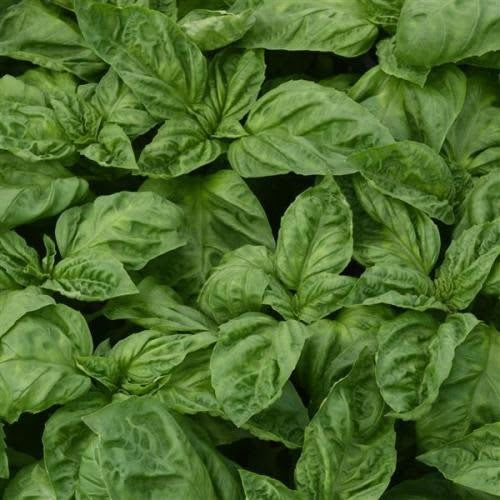Basil Newton
Basil Newton
Couldn't load pickup availability
Short Summary for Basil Newton
Basil Newton is a high-yielding, flavorful basil variety that is perfect for a wide range of culinary uses, including fresh salads, pesto, and garnishes. Known for its vibrant green leaves and strong aroma, this basil variety thrives in warm, sunny environments. Following the Basil Newton planting guide will ensure successful growth and an abundant harvest of fresh, aromatic basil leaves.
Planting Instructions for Basil Newton
General Sowing Time: Start sowing Basil Newton seeds indoors 6–8 weeks before the last expected frost, or sow them directly outdoors once the soil temperature has reached 18-21°C.
Position: Select a sunny location with at least 6–8 hours of direct sunlight daily. Basil Newton thrives in warm conditions and needs plenty of sunlight to develop its full flavor.
Suitable Space: Choose fertile, well-drained soil that is rich in organic matter for the best results. Space plants 20-30 cm apart to allow for proper growth and air circulation.
Sow Depth: Sow the seeds at a depth of 0.5 cm to promote quick and efficient germination.
Spacing: Space Basil Newton plants 20-30 cm apart to prevent overcrowding and to allow each plant to spread freely.
Height: Basil Newton typically grows to a height of 30-45 cm, producing bushy plants with vibrant, flavorful leaves.
Germination: Seeds will typically germinate in 5–10 days when kept at a temperature range of 18-21°C.
Days to Bloom: Basil Newton will bloom in 60–70 days, but it’s recommended to pinch off flowers to promote continued leaf production and to improve flavor.
Temperature: Ideal temperatures for Basil Newton range between 18-21°C during the day, with slightly warmer temperatures for optimal growth.
Watering: Water regularly to keep the soil moist but not waterlogged. Ensure good drainage, as basil prefers consistently moist soil but can suffer from root rot if overwatered.
Fertilizing: Use a balanced, organic fertilizer once a month to encourage healthy leaf growth. Avoid over-fertilizing, as this can affect the flavor of the basil.
Pests/Diseases: Monitor for pests such as aphids and spider mites, and treat with organic insecticidal soap if necessary. Prevent fungal diseases like downy mildew by ensuring good air circulation and avoiding overhead watering.
By following these Basil Newton planting instructions, you can enjoy a healthy, abundant harvest of aromatic, flavorful basil for all your culinary needs.
Share


